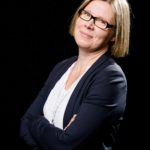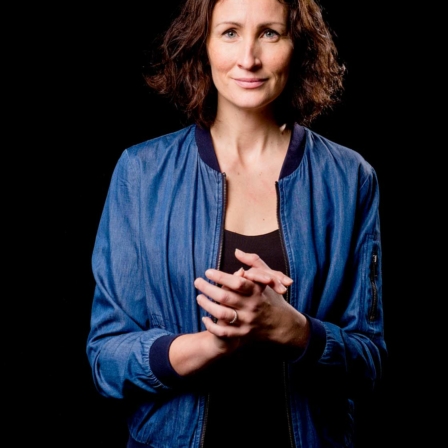A change has taken place in the world astonishingly fast and nobody has been prepared for it. The situation at Sitra has been no different to many other workplaces, with work being done almost entirely online and remotely.
At Sitra, we want to build a sustainable future, a carbon-neutral circular economy. And when the reconstruction of the world economy begins, experts and expertise from all sectors of society will be required to build that future.
Faith in the future will be found by participating and doing. Competence also plays an important role in shaping the future and maintaining and increasing Finland’s competitiveness.
The circular economy is not the responsibility of a chosen few. We all have the right to participate in the creation of a sustainable future. Circular economy education is not aimed at educating special experts in the circular economy. The objective is that in the future all of us will become circular economy professionals. There will be many different professionals in the future as well, and they will all know how to implement circular economy solutions in their own work.
Since 2017, Sitra has been funding the development of circular economy education in Finland at various levels of education to the tune of almost four million euros. Since the autumn of 2019, circular economy education has been provided at all levels of education in Finland.
Below, we have compiled links to suitable courses that can be studied remotely to complement your knowledge of the circular economy. In some of the courses, teaching is provided in addition to the remote leaning material. The teaching schedules vary between schools. Don’t hesitate to contact the party providing the course directly. You can also ask us at Sitra (Nani) about these courses.
Examples of courses
The Decarbonized Design online material
Aalto University and Yale University collaborated to create online material and a course on the circular economy for the design stage of construction. The module is suitable as part of studies in architecture, landscape architecture or structural engineering. The perspective is the carbon cycle in the built environment and construction processes. The online material is openly available and anyone can study it independently.
The Circula game
If there are several of you living in the same household and you would like to learn about the circular economy by playing, download the material for the Circula game for free. In the game, the players develop circular economy business ideas, learn to understand the circular economy from the perspective of business activities and consumption, and gain teamwork skills and capabilities for developing their own business ideas and entrepreneurship. The game is suitable for anyone over the age of 15.
Circular.now
The basics of the circular economy can be studied in the Circular.now course (worth five credits) developed by Lappeenranta University of Technology, the University of Helsinki, Aalto University and the University of Eastern Finland. The course includes written materials, video interviews and lectures, assignments, tests and a guide for teachers. The study module consists of five different sections. The course can be studied independently at any time, but you must have the right to study in the universities organising the course or have the flexible study right (JOO).
Climate.now
The basics of climate change can be studied on the Climate.now course (five credits), created by Helsinki University and Lappeenranta University of Technology. In terms of the content, the study module is divided into climate change as a phenomenon, its mitigation and adaptation to it. The material comprises lectures, videos, learning assignments, tests and applied tasks that can be linked to the student’s own field of study. The course can be studied independently at any time, but you must have the right to study at the universities organising the course or have the flexible study right (JOO).
Course on Leadership for sustainable change
Making the future requires change management. The course led by the universities of Helsinki and Tampere and taught in English (five credits) provides students with tools for tackling the major sustainability challenges of our time and implementing change in different organisations. The next course will begin in autumn 2020. To take part in the course, you must have the right to study at the organiser universities or at the open university or have the flexible study right (JOO).




Recommended